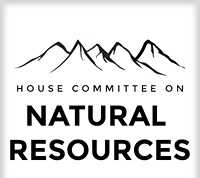EPA to Provide Nearly $1 Million to Mid-Atlantic States to Protect Beachgoers from Bacteria
PHILADELPHIA – RealEstateRama – The U.S. Environmental Protection Agency will provide to the states of Delaware, Maryland, Pennsylvania, and Virginia a total of $962,000 in grant funding to monitor water quality at coastal and Great Lakes beaches and to notify the public if elevated levels of illness-causing bacteria make swimming unsafe. This allocation is part of the $9.7 million total in grant funding announced by the agency last week.
“The Mid-Atlantic states boast beautiful coastlines that draw countless visitors to enjoy the waters and local attractions,” said EPA Region 3 Administrator Amy Van Blarcom-Lackey. “With this funding, EPA helps our regions’ beaches remain welcoming and safe and fulfills the agency’s mission to protect human health and the environment.”
This funding is authorized by the Beaches Environmental Assessment and Coastal Health (BEACH) Act and advances the goals of cooperative federalism and ensuring that every American has access to clean and safe water. Each of these goals supports EPA’s “Powering the Great American Comeback” initiative.
EPA anticipates that it will award grants to the following eligible recipients after all legal and administrative requirements are satisfied:
Delaware: $210,000
Maryland: $265,000
Pennsylvania: $216,000
Virginia: $271,000
Learn more about the BEACH Act grants.
Before heading to the shore, check the relevant state, Tribal or territorial beach program website for closing or advisory information.
Background
To be eligible for BEACH Act grants, states, Tribes, and territories must have coastal or Great Lakes recreational waters adjacent to beaches or similar points of access used by the public. They must also have a water quality standards program and EPA-approved numeric recreational water quality standards for coastal waters. Additionally, eligible entities must meet 11 performance criteria for implementing monitoring, assessment, and notification components of the beach program. Each grantee receives an amount based on the length of the beach season, the number of miles of shoreline and the populations of coastal counties.
Contact Information
R3 Press Office ()













